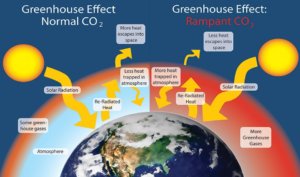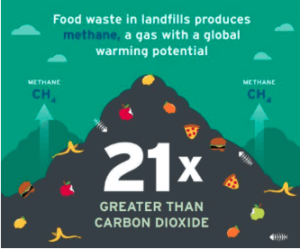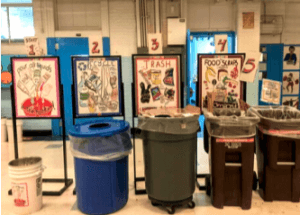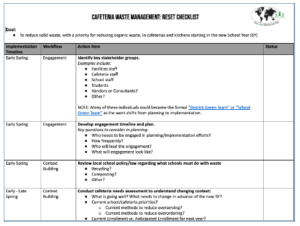Top Reasons to be Obsessed with Methane and Reducing Food Waste
Did you know that methane gas is as problematic for global warming as CO2?

Many know CO2 is a greenhouse gas (GHG). And, many know it’s the leading cause of climate change.
Probably, they also know about the greenhouse effect. (Does this image ring a bell?!).
Maybe less talked about, methane traps heat 28-34 times more efficiently than CO2.
And, it stays in our atmosphere for less time as CO2. Which means, we can make real change!
Now, are you obsessed with methane?!

Food waste in landfills accounts for 8% of all GHG emissions and since 40% of all food is wasted, it has become a leading cause of methane.
Now, are you obsessed with reducing food waste?!
Reducing food waste is a tangible way for schools – and students – to reduce climate change. (And, save the district money.)
50% of school waste is organic
Key strategies for schools (also found in this excerpt from our recent book) :
- Monitoring food ordering & thoughtful menu planning
- Offer not Serve
- Waste stations with liquid dumping & composting
- Food share tables
- Changing lunch schedules to provide adequate time to eat
- Food-to-animal programs
Recently, GGI shared strategies with districts via the Center for Green Schools- getting (re)started with cafeteria waste management. (Sign up to watch the video – for free!)

This checklist reduces organic waste in cafeterias & kitchens.
Schools enter waste data in ENERGY STAR Portfolio Manager to see what happens to their greenhouse gas emissions.
So, start composting! And, offering items to kids rather than automatically serving. It works.
Food waste reduction today means less methane in the atmosphere tomorrow. (ok, in 12 years.)
Be obsessed with methane & food waste reduction! Your district will measurably reduce climate change.